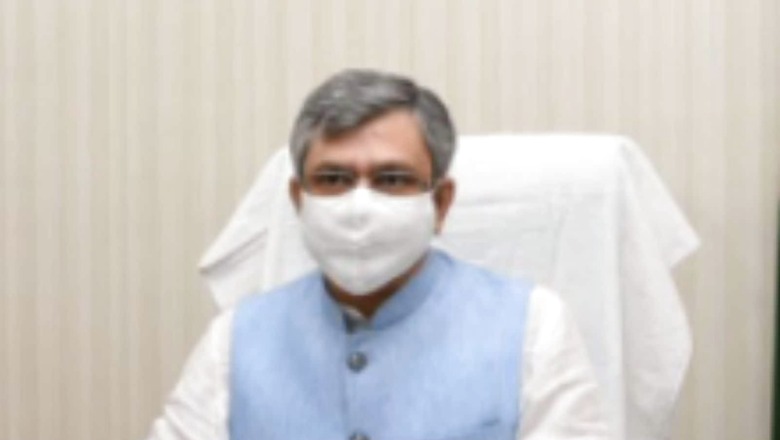
views
Even as the Centre has released the ‘Draft India Data Accessibility and Use Policy’ and opened the doors for feedback from the public until March 18, Minister for Communications, Electronics & Information Technology and Railways Ashwini Vaishnaw has shared key details regarding the government’s vision.
The draft suggests that an India Data Office (IDO) be established to streamline and unify data access and sharing among government and other stakeholders. It also adds that the India Data Council, which would be made up of IDO and chief data officers, will be formed with the goal of completing activities that require deliberation among ministries, departments and state governments.
While talking to CNBCTV18, the union minister stated that a time frame of six to eight months can be expected for setting up the council and making it operational.
“We would like to have very exhaustive and extensive consultations because the subject of data is very sensitive. We would like to have opinions from everyone and put it in that framework of privacy that the Supreme Court has laid and the bill is also in progress,” he added.
Vaishnaw was also asked about whether there is any possibility or idea that the Centre will drop the Data Protection legislation, as some recent reports have claimed that India may develop a whole new privacy bill, laying aside the present version of the Personal Data Protection Bill 2019, which has been in the works for nearly 5 years.
The 2019 bill was first developed by a panel led by retired Supreme Court judge BN Srikrishna, and it was only evaluated by a Joint Committee of Parliament (JCP) in November 2021, when it gave its final recommendations and a revised draft bill.
However, the minister said: “I was surprised when I saw those news reports. I don’t think there is a need for new legislation. We are working on the recommendations of JCP right now.”
While explaining the scenario the minister stated that the consultation process is “extensive”. He maintained that almost every possible stakeholder was consulted and the JCP report is very comprehensive that includes almost every aspect of data, many characteristics of social media and a lot of aspects of concerns that are still present.
“The industry does have concerns about the way the execution will happen in the sense that the institutional mechanism is there and the compliance burden which will come up. There are concerns about it but then ultimately as a society we have to come up with the balance of convenience between where do we stand on freedom of expression, privacy and where do we stand on compliance. That balance has to be brought in,” said Vaishnaw.
When asked about the concerns with kind of exemptions that the government can enjoy and whether there is a need for a review, the union minister pointed out that the benchmark is General Data Protection Regulation (GDPR)—which is the toughest privacy and security law in the world, passed by the European Union.
“In the case of GDPR, the exemptions given to the governments are far bigger than the exemptions which have been put in India’s data protection bill. Almost in 8 or 9 areas exemptions are given, whereas in our case we have taken only 4 areas,” he said. “It is a far more limited exemption.”
The minister also talked about the timeline for the protection bill and said that the government needs to resolve about six to seven issues regarding the legislation “which are a bit tricky” and the committee has already made some suggestions on these issues.
“Within the parliamentary process the amendments which need to be taken up, do we need to take those amendments, what would be the process and what’s the right resolution of those issues which have been highlighted by JCP, these are the issues and I don’t think it should take too much time,” the IT minister noted.
The discussion is primarily around the institutional structures that are proposed in the bill and that’s where the debate is, he said. “If anybody has a complaint tomorrow, instead of writing a paper complaint can the entire process be made digital, can the compliance be almost like the online kind of compliances—these are the things in which the work is needed,” the minister explained.
Additionally, Vaishnaw stated that the disparity in terms of education and awareness levels, all of these need to be considered during the institutional framework-making process. He also noted that the government is targeting the ongoing session in Parliament but the outer limit will be the monsoon session to bring the privacy bill.
Read all the Latest Tech News and Breaking News here




















Comments
0 comment